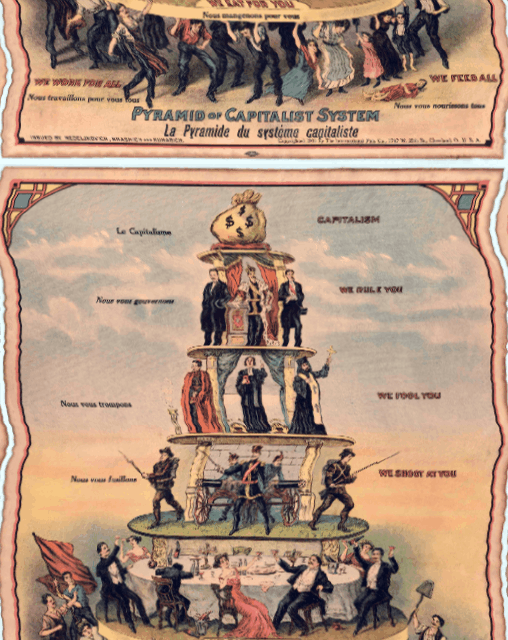Late Stage Capitalism Is Weird Capitalism

🌈 Abstract
The article discusses the concept of "Asset Manager Capitalism" - a new and unusual form of capitalism where a few giant index funds (Blackrock, Vanguard, State Street) own significant stakes in most major companies across various industries. This has led to a concentration of ownership and power in the hands of these asset managers, who can influence corporate governance and economic policies, but may not always act in the best interests of the broader public.
🙋 Q&A
[01] The Potted History of American Capitalism
1. What are the key stages in the evolution of American capitalism described in the article?
- The article outlines the following stages:
- Gilded Age robber barons and monopolies
- Trustbusting and more dispersed wealth, with households taking a larger role
- The age of "managerialism" with technocratic managers, strong unions, and government regulation
- The age of "shareholder primacy" with pension funds driving a focus on short-term profits
2. How does the current stage of "Asset Manager Capitalism" differ from the previous stages?
- In Asset Manager Capitalism, a few giant index funds (Blackrock, Vanguard, State Street) own significant stakes in most major companies across industries
- These index funds have a lot of power as large shareholders, but are constrained in that they cannot easily sell their stakes
- The index funds have structures that incentivize executives to maximize share prices, but the funds themselves are not very active in corporate governance
[02] The Characteristics of Asset Manager Capitalism
1. What are the key characteristics of Asset Manager Capitalism described in the article?
- The index funds own an average of 22% of every S&P 500 company, giving them significant influence
- The index funds cannot easily sell their stakes, making them "patient capital"
- The index funds have low fees, so they get the same compensation regardless of whether they actively intervene in corporate governance
- The index funds tend to vote with management rather than pushing for changes, acting as "King Logs" of corporate governance
2. How does Asset Manager Capitalism impact wealth inequality and economic policies?
- Asset Manager Capitalism has contributed to wage stagnation, as the index funds prefer lower labor costs
- It has also exacerbated intergenerational wealth inequality, as asset inflation benefits those who owned assets before the inflation
- The dominance of index funds may have influenced the Federal Reserve's policies, such as keeping interest rates low to benefit asset managers
[03] Potential Solutions and Reforms
1. What policy proposals are discussed in the article to address the issues with Asset Manager Capitalism?
- Blocking future mergers and potentially breaking up past mergers to reduce concentration
- Creating tax incentives for companies to voluntarily break themselves up vertically
2. What are the challenges and limitations of these proposed solutions?
- Unwinding past mergers is extremely difficult, as shown by the long process to break up AT&T
- Creating abuse-proof tax incentives for breakups may be challenging, and could lead to new bubbles
- The solutions may further enrich those who benefited from monopolization in the first place